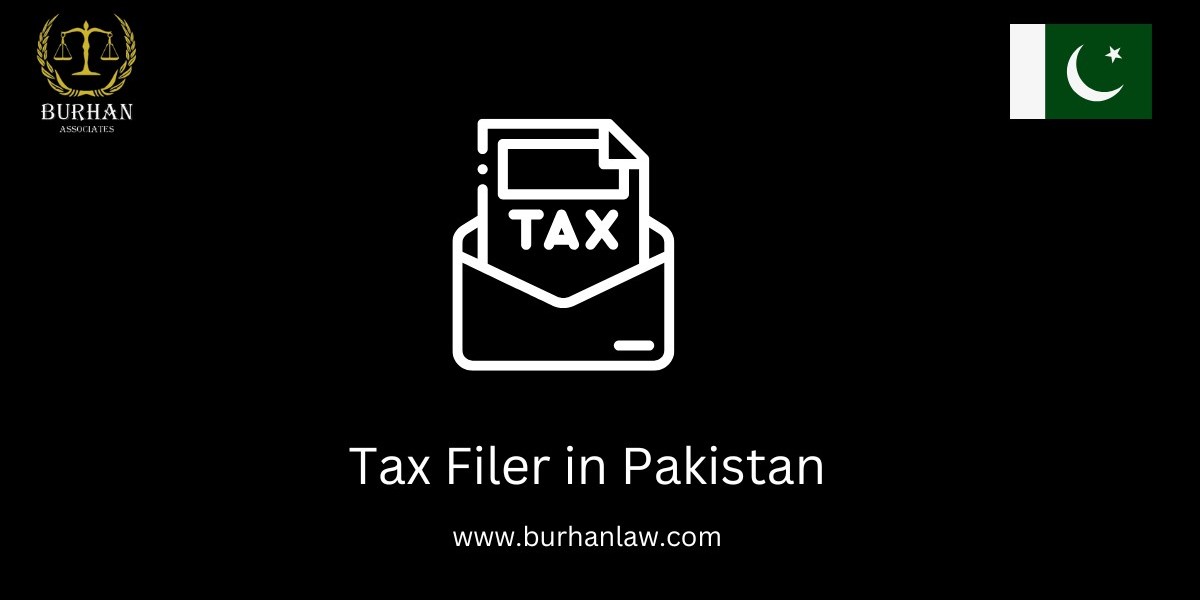Tax Filer in Pakistan
In Pakistan, being a tax filer is essential for individuals and businesses to comply with the country's tax regulations. A tax filer in Pakistan benefits from lower tax rates, access to financial services, and participation in various government initiatives. This guide will explain the process of becoming a tax filer, the advantages of being a filer, and the potential drawbacks for non-filers.
What is a Tax Filer in Pakistan?
A tax filer is an individual or business entity that files annual income tax returns with the Federal Board of Revenue (FBR). Filing tax returns not only demonstrates a person’s compliance with tax laws but also ensures their inclusion in the Active Taxpayers List (ATL).
The FBR distinguishes between filers and non-filers. Filers enjoy reduced tax rates, while non-filers face significantly higher tax obligations and limited access to government services.
Why Become a Tax Filer in Pakistan?
Becoming a filer provides numerous advantages that can result in significant financial savings. Here are the key benefits:
Reduced Tax Rates for Filers
Filers pay lower withholding tax on various transactions, including bank withdrawals, property purchases, and vehicle registrations.
Non-filers, on the other hand, are subject to double or even triple the tax rates on these same activities.
Access to Government Contracts and Tenders
Many government departments and organizations prefer to award contracts to registered tax filers. This boosts business growth opportunities.
Ease of Banking Transactions
Filers face fewer restrictions and lower tax rates on cash withdrawals, remittances, and foreign currency exchanges. Non-filers are often charged higher taxes by financial institutions.
Lower Property Tax and Transfer Fees
When purchasing property, property tax for non-filers in Pakistan is significantly higher compared to filers. Filing taxes can result in savings of millions, depending on the transaction size.
Vehicle Registration and Token Tax Benefits
Filers pay lower registration fees and token taxes for cars and motorcycles, whereas non-filers pay up to 100% more.
How to Become a Tax Filer in Pakistan
Becoming a filer involves registering with the FBR and submitting your tax returns annually. The process can now be completed online, making it easier for individuals and businesses.
Step-by-Step Guide for FBR Filer Registration Online
Create an Account on the FBR Portal
Visit the FBR’s official website at www.fbr.gov.pk.
Click on the IRIS Portal – the platform used for tax registration and return filing.
Select Registration for Unregistered Persons if you do not already have an account.
Provide Personal Information
Enter your CNIC number, mobile number, and email address.
Verify your account using the OTP sent to your mobile and email.
Submit the Required Documents
For Individuals:
Copy of CNIC
Proof of income (salary slips, business records)
Utility bill as proof of address
For Businesses:
Business registration documents
NTN (National Tax Number)
Obtain Your National Tax Number (NTN)
Once registered, the system will generate an NTN automatically.
Your NTN is crucial for conducting official transactions and filing tax returns.
How to File Income Tax Return Online in Pakistan
Login to the IRIS Portal using your credentials.
Select the option to File Income Tax Return.
Fill in the required information about your income, expenses, and assets.
Attach necessary documents, such as salary slips, property records, and bank statements.
Review the form and click Submit.
Upon submission, you will be added to the Active Taxpayers List (ATL) within 24 hours.
Who is Eligible for Filer Status in Pakistan?
Eligibility for filer status in Pakistan includes:
Salaried individuals earning above the tax exemption threshold.
Business owners and self-employed professionals.
Companies and associations of persons (AOPs).
Non-resident Pakistanis with income sources in Pakistan.
FBR Filer Registration Fees
The FBR filer registration fees depend on the category of the filer. Typically, the registration is free for individuals, while businesses and corporations may incur nominal charges.
Non-Filer Tax in Pakistan
The government imposes higher tax rates on non-filers to encourage tax compliance. Key areas where non-filers face increased taxes include:
Bank transactions – Non-filers pay up to 0.6% on cash withdrawals above PKR 50,000.
Vehicle registration – Double the fee compared to filers.
Property transactions – Higher property tax rates and transfer fees.
Import and export duties – Non-filers face stricter regulations and higher tariffs.
Consequences of Being a Non-Filer
Remaining a non-filer in Pakistan can lead to:
Limited access to banking services.
Ineligibility for government contracts and tenders.
Higher penalties and interest on taxes.
Legal action by the FBR for tax evasion.
How to Check Your Filer Status in Pakistan
To check your status:
Visit the FBR website.
Go to the Active Taxpayer List (ATL) section.
Enter your CNIC or NTN to verify your status.
If your name does not appear, you need to file your tax returns to gain filer status.
Filing Income Tax Returns – Key Considerations
Deadline Compliance – Always file your returns before the FBR deadline to avoid penalties.
Accurate Reporting – Ensure all income sources and expenses are declared accurately.
Seek Professional Assistance – If needed, consult a tax advisor to handle complex filings.
Conclusion
Becoming a tax filer in Pakistan is crucial for financial growth and legal compliance. The benefits, such as reduced taxes, easier banking, and property transaction advantages, far outweigh the effort required to register and file returns. By following the FBR filer registration online process and filing tax returns regularly, individuals and businesses can avoid heavy penalties, enjoy lower tax rates, and contribute to the nation’s economic development.
For More Information Visit Us : Burhan Law









